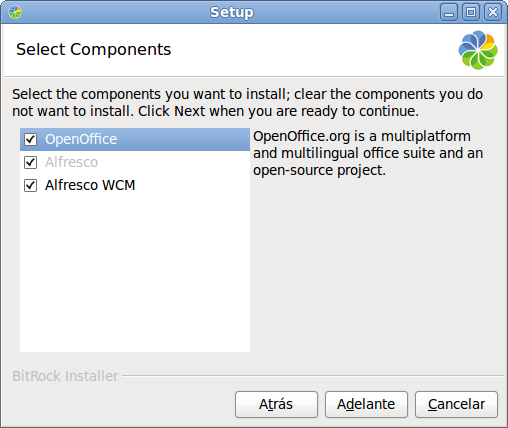
#About bitnami alfresco community stack software
Last year we released Tanzu Application Catalog, a customizable selection of open source software from the Bitnami Application Catalog that most of you already know and love. Since the VMware acquisition, we have had an opportunity to both double-down on the breadth and depth of our current offerings and bring Bitnami to even more clouds. Bitnami simplifies the management of multi-cloud, cross-platform environments by providing functionally equivalent, platform-optimized application and infrastructure stacks for all software offerings. So while I really like the uniformity of Bitnami and the modular nature of it I have run into a snag trying to setup replication.Bitnami’s mission is to make popular software available for everyone, everywhere. It was difficult to follow because most of the commands he was suggesting didn't work from the bitnami mysql> command line. I was following directions from someone who had a "regular" install. So this came up for me because I was trying setup replication. I'm guessing that they are giving us a very paired down mysql group of commands because there will be less for them to support and less for people to jack up.Just to get to command line you have to run.rcmysql start or stop doesn't work from mysql> you have to shell out of where your at and run the ctlscript.sh which is a pain.mysql>SHOW MASTER STATUS returns -> (nothing) doesn't seem to work.It puts you into its own bash shell bash-4.2#.This Reddit thread has a few other AWS-specific comments as well.īitnami evidently is unable to use certain commands from their mysql command line. That is why native LEMP stacks like SlickStack (my project) are gaining momentum. Ultimately, containers are a recent trend that have become very popular among so-called "enterprise" and "corporate" in-house teams, but it is one of those things that might not be the best features for smaller agencies or independent developers to embrace. As mentioned, all upgrades run through Bitnami (and not Ubuntu mirrors, etc) meaning you are bound to their versions and release schedules you are also often required to completely re-install the stack again. For all the alleged advantages in terms of environment "stability", it turns out that upgrading your stack can actually introduce quite a bit of instability and unpredictability, often to the extent of canceling out the benefits. But what many developers discover with Bitnami and containers is upgrading your stack can be rather janky. For some users this "bloat" is justifiable, and preferable (for example, very large companies who require across-the-board uniformity). At the end of the day, Bitnami (and other containers, like Docker) are adding another "layer" to your stack, and thus, more bloat. To put it simply, logging into shell on a server where Bitnami is installed is not in fact logging into the actual shell :) when trying to analyze or replicate your stack, etc.


However as mentioned, this can quickly become frustrating when you are trying to use "standard" Bash shell commands or even the MySQL CLI, e.g. The entire point of using a containerized approach is to have more control of the stack environment, which can improve compatibility, predictability, security, and otherwise. This could be seen as either an advantage or a disadvantage, depending on your perspective (and situation). Even after you figure those out, most of the online tutorials and documentations you might find will not apply to your stack. So, many developers who are used to customizing their stack using nano or vim editors (via the Bash shell) quickly discover that you first have to figure out where all the different configuration files of your stack modules reside, etc. Because Bitnami is a container approach to web stacks, it installs everything in Ubuntu (or whatever Linux distro) under the /opt/bitnami directory.

There are 3 common drawbacks to Bitnami vs.


 0 kommentar(er)
0 kommentar(er)
